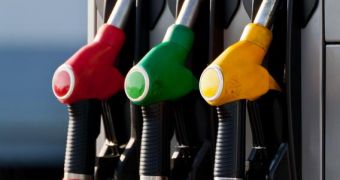A recent study describes a novel technology to produce environmentally friendly gasoline with the help of a laboratory-made strain of Escherichia coli (E. coli, for short) bacterium.
In their paper, the researchers explain that, for the time being, gasoline, diesel and several other chemical compounds used in industries and when making various household products are obtained from fossil resources.
The problem is that these fossil resources are limited. Besides, human society's making intense use of them has led to the emergence of phenomena such as climate change and global warming.
Therefore, it is mandatory that the scientific community come up with novel ways to obtain fuels and chemicals that are both sustainable and eco-friendly.
Previous studies have documented the use of engineered E. coli bacteria to produce long-chain alkanes (i.e. hydrocarbons) that could serve as a replacement for diesel.
Scientists working with the Korea Advanced Institute of Science and Technology, otherwise known as KAIST, now claim that a lab-made E. coli strain that they have successfully created can produce short-chain alkanes that might function as a substitute for gasoline.
“We are pleased to report, for the first time, the production of gasoline through the metabolic engineering of E. coli, which we hope will serve as a basis for the metabolic engineering of microorganisms to produce fuels and chemicals from renewable resources,” study leader Professor Sang YUP of KAIST's Department of Chemical and Biomolecular Engineering said, as cited by EurekAlert.
“It is only the beginning of the work towards sustainable production of gasoline. The titer is rather low due to the low metabolic flux towards the formation of short-chain fatty acids and their derivatives. We are currently working on increasing the titer, yield and productivity of bio-gasoline,” the professor further detailed on his and his colleagues’ work.
A detailed account of this investigation and its outcome was published in yesterday's online issue of the journal Nature. The paper is titled “Microbial Production of Short-chain Alkanes.”

 14 DAY TRIAL //
14 DAY TRIAL //